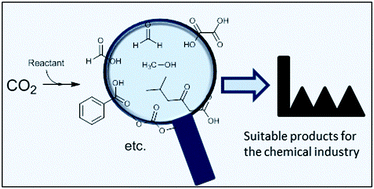Alexander Otto, Thomas Grube, Sebastian Schieben, and Detlef Stolten
Energy Environ. Sci. 2015, 8, 3283-3297
Abstract: The utilization of ‘captured’ CO2 as a feedstock in the chemical industry for the synthesis of certain chemical products offers an option for preventing several million tons of CO2 emissions each year while increasing independence from fossil fuels. For this reason, interest is increasing in the feasibility of deploying captured CO2 in this manner. Numerous scientific publications describe laboratory experiments in which CO2 has been successfully used as a feedstock for the synthesis of various chemical products. However, many of these publications have focused on the feasibility of syntheses without considering the ancillary benefits of CO2 emissions reduction if the CO2 is sourced from effluent or the potential profitability of this process. Evaluating these environmental and economic benefits is important for promoting the further development of benign CO2 applications. Given the multitude of CO2 utilization reactions in the laboratory context, an initial assessment must be undertaken to identify those which have the most potential for future technical exploration and development. To achieve this, 123 reactions from the literature were identified and evaluated with the help of selection criteria specifically developed for this project. These criteria incorporate both the quantitative potential of reducing CO2 and possible economic benefits of these syntheses. The selected reactions are divided into bulk and fine chemicals. Of the bulk chemicals, formic acid, oxalic acid, formaldehyde, methanol, urea and dimethyl ether, and of the fine chemicals, methylurethane, 3-oxo-pentanedioic acid, 2-imidazolidinone, ethylurethane, 2-oxazolidone and isopropyl isocyanate, mostly fulfil the selection criteria in each category.

No comments:
Post a Comment
Note: Only a member of this blog may post a comment.